OECD Development Centre | |
|---|---|
 Coat of arms
| |
| Secretariat | Paris, France |
| Membership | 54 countries |
| Leaders | |
• Director | Ragnheiður Elín Árnadóttir |
| Establishment | 1961 |
Website www | |
The OECD Development Centre was established in 1961 as an independent platform for knowledge sharing and policy dialogue between Organisation for Economic Co-operation and Development (OECD) member countries and developing economies, allowing these countries to interact on an equal footing.[1]
Today, 25 OECD member countries and 29 non-OECD member countries are members of the Centre.[2]
Membership
The Development Centre of the Organisation for Economic Co-operation and Development was established in 1961 and comprises 54 countries, of which 25 are OECD members: Belgium, Chile, Colombia, the Czech Republic, Costa Rica, Denmark, Finland, France, Greece, Iceland, Ireland, Israel, Italy, Japan, Korea, Mexico, the Netherlands, Norway, Portugal, Slovak Republic, Slovenia, Spain, Sweden, Switzerland and Turkey. In addition, 29 non-OECD countries are full members of the Development Centre: Albania (since June 2023), Brazil (since March 1994); India (February 2001); Romania (October 2004); Thailand (March 2005); South Africa (May 2006); Egypt and Viet Nam (March 2008); Indonesia (February 2009); Mauritius, Morocco and Peru (March 2009); the Dominican Republic (November 2009); Senegal (February 2011); Argentina and Cabo Verde (March 2011); Panama (July 2013); Côte d'Ivoire, Kazakhstan and Tunisia (January 2015); the People's Republic of China (July 2015); Ghana and Uruguay (October 2015); Paraguay (March 2017), El Salvador and Guatemala (February 2019), Togo, Rwanda and Ecuador (May 2019). The European Union also takes part in the work of the Governing Board.
- Member states[3]
 Albania
Albania Argentina
Argentina.svg.png.webp) Belgium
Belgium Brazil
Brazil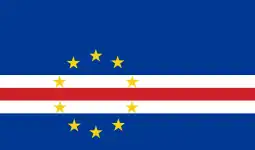 Cape Verde
Cape Verde Chile
Chile China
China Colombia
Colombia Costa Rica
Costa Rica Ivory Coast
Ivory Coast Czech Republic
Czech Republic Denmark
Denmark Dominican Republic
Dominican Republic Ecuador
Ecuador Egypt
Egypt El Salvador
El Salvador Finland
Finland France
France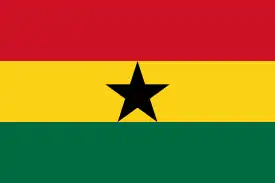 Ghana
Ghana Greece
Greece Guatemala
Guatemala Iceland
Iceland India
India Indonesia
Indonesia Ireland
Ireland Italy
Italy Japan
Japan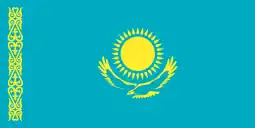 Kazakhstan
Kazakhstan South Korea
South Korea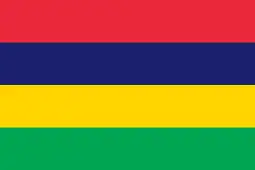 Mauritius
Mauritius Mexico
Mexico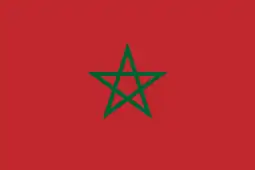 Morocco
Morocco Netherlands
Netherlands Norway
Norway Panama
Panama Paraguay
Paraguay Peru
Peru Portugal
Portugal Romania
Romania Rwanda
Rwanda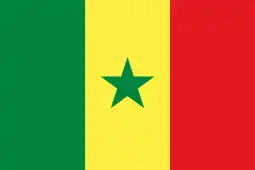 Senegal
Senegal Slovakia
Slovakia Slovenia
Slovenia South Africa
South Africa Spain
Spain Sweden
Sweden.svg.png.webp) Switzerland
Switzerland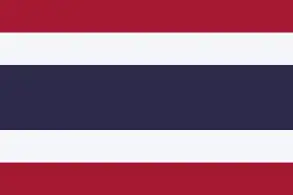 Thailand
Thailand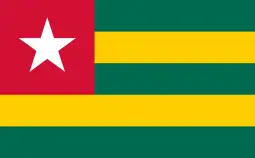 Togo
Togo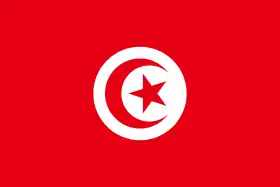 Tunisia
Tunisia Turkey
Turkey Uruguay
Uruguay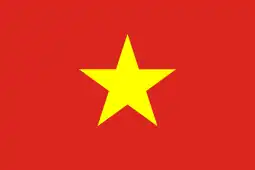 Vietnam
Vietnam
Participating OECD members: Belgium, Chile, Colombia Czech Republic, Costa Rica, Denmark, Finland, France, Greece, Iceland, Ireland, Israel, Italy, Japan, Korea, Mexico, Netherlands, Norway, Portugal, Slovak Republic, Slovenia, Spain, Sweden, Switzerland and Turkey.
Participating non-OECD members: Albania, Argentina, Brazil, Cabo Verde, China, Côte d'Ivoire, Dominican Republic, Ecuador, Egypt, El Salvador, Ghana, Guatemala, India, Indonesia, Kazakhstan, Mauritius, Morocco, Panama, Paraguay, Peru, Romania, Rwanda, Senegal, South Africa, Thailand, Togo, Tunisia, Uruguay, Viet Nam.
Non-participating OECD members: Australia, Austria, Canada, Estonia, Germany, Hungary, United Kingdom, the United States and New Zealand.
Activities
Policy dialogue and knowledge-sharing
- The Global Forum on Development (GFD). The GFD (focusing on “Preparing for the Post-2015 World” in 2013, 14 and 15) provides a venue for high-level policy makers and civil society to exchange perspectives, explore challenges, opportunities and learn lessons about current poverty reduction policies and methods for fostering social cohesion and progress.
- Regional International Economic Forums for Africa, Latin America and the Caribbean, and forthcoming for Asia attract participation by governments, international organisations, civil society, foundations, think tanks, the media, corporations and academia.
- As part of the Development Centre’s contribution to the OECD Strategy for Development, the Centre is leading efforts across the OECD Secretariat to establish a multi-year process of knowledge sharing and policy dialogue between OECD and partner countries facing similar development challenges, commencing with the:
- - OECD Network for Policy dialogue on Natural-resource Driven Development,[4] and
- - OECD Network for Policy Dialogue on Global Value Chains[5]
- The Development Centre has Networks of key stakeholders engaged in policy dialogue, producing relevant analysis, and sharing experience on policy reform for development. Some of these Networks attract experts as members but also offer opportunities for the Governing Board to participate in open sessions:
- - Network of Multinationals: Emerging markets network (EmNet)[6]
- - Network of Foundations working on development netFWD)[7]
- - Network of Heads of Communication and Information in DAC Development Agencies to share good practices and engage in peer learning and on how effectively to raise public awareness and communicate about development cooperation (DevCom).[8]
Cross sectoral analysis
- Multi-dimensional Country Reviews (MDCRs):[9] a tool that contributes to the implementation of the OECD Strategy for Development and directly engages non-Members. The MDCRs provide national policy makers and their partners with the inputs needed for a nationally owned and implemented development strategy; underlining the set of concrete steps that will address the key constraints across all dimensions of national development. The national development strategy will help the country maintain momentum for the social and economic development needed, as well as identify and build effective strategies to achieve inclusive, sustainable and equitable growth that can improve the well-being of all citizens. The effectiveness of the MDCR's process cements the quality of the national development strategy.
Global, regional and country analysis
- Annual thematic flagship publication: OECD Perspectives on Global Development
- Regional Economic Outlooks in partnership with international organisations in each region:
- - African Development Dynamics[10]
- - Latin American Economic Outlook[11]
- - Economic Outlook for Southeast Asia, China and India[12]
- Regional/country studies: social cohesion policy reviews, gender, migration, youth inclusion, competitiveness, global value chains, taxation and middle-classes; innovation and territorial development, capital markets, etc.
Statistics and indicators
- Revenue Statistics: Africa; Latin America and Asia
- The OECD Social Institutions and Gender (SIGI) Index[13]
- OECD-ASEAN Narrowing Development Gap Indicators (NDGIs)
See also
References
- ↑ "OECDdev – OECD Development Centre | Knowledge for policy".
- ↑ "Development Centre Governing Board - OECD". www.oecd.org.
- ↑ "Development Centre Member Countries - OECD". www.oecd.org.
- ↑ "Policy Dialogue on Natural Resource-based Development (PD-NR) - OECD".
- ↑ "Productive Transformation - OECD". www.oecd.org.
- ↑ "OECD Emerging Markets Network - EMnet - OECD". www.oecd.org.
- ↑ "Network of Foundations Working for Development - A global network of foundations committed to optimising the impact of philanthropy for development". www.oecd.org.
- ↑ "DevCom - OECD Development Communication Network - OECD". www.oecd.org.
- ↑ "Multi-dimensional Country Reviews - Multi-dimensional Country Reviews".
- ↑ Commission, African Union (5 November 2019). Africa's Development Dynamics 2019 Achieving Productive Transformation: Achieving Productive Transformation. ISBN 9789264731295.
- ↑ Latin American Economic Outlook 2019 Development in Transition: Development in Transition. 27 September 2019. ISBN 9789264313767.
- ↑ Economic Outlook for Southeast Asia, China and India 2019 – Update Responding to Environmental Hazards in Cities: Responding to Environmental Hazards in Cities. 10 July 2019. ISBN 9789264888593.
- ↑ "WHAT IS SIGI?". genderindex.org.